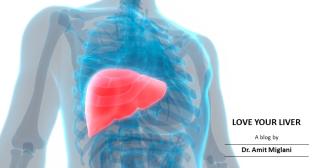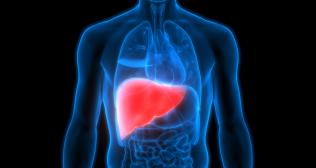
Mindful Eating A Psychological Perspective on Obesity
Obesity has been considered as a global epidemic affecting people of all ages that has grown quickly and become a serious public health concern. Researchers are finding that psychological processes, particularly the idea of mindful eating, have emerged as a viable concept for treatments as they continue to explore the intricate components that underlie this problem.
It has been demonstrated that mindful eating, which calls for people to be aware of their surroundings and mindful of their meals, improves both general well-being and weight control.
The Impact of Different Eating Behaviors on Weight Gain and Weight Regain
We often meet people who, despite successfully losing weight, regain it. This is typically due to the reasons below:
Consuming large amounts of food and losing control of overeating is known as binge eating. Although the prevalence of binge eating among obese individuals varies, evidence shows it is a significant issue. A recent study found that nearly 70% of those who binge eat are obese.
Emotional eating happens when people eat in response to their emotions, while external eating occurs when people eat because of external cues like the sight, smell, or taste of food. Although there are no specific prevalence estimates for emotional and external eating, these behaviors are more common in obese individuals than in those of normal weight.
Food cravings can lead to obsessive thoughts about food and impulsive consumption, increasing the risk of weight gain. These behaviors are often not addressed in weight loss programs, which may contribute to the lack of long-term success in these interventions.
Principles of Mindful Eating
Eating mindfully will help individuals focus their eating behavior. By becoming more aware of hunger signs and recognizing when food fails to satisfy their needs such as taste, smell, and texture, they will make better food choices. This self-awareness promotes quitting when full instead of consuming everything on the plate. People might eat less since they will appreciate their food more. Savoring each meal and not just chewing and swallowing is the secret to living in the present.
Strategies for Mindful Eating
Building a better relationship with food is the goal of mindful eating; it's not about fast fixes or restricted diets. These useful tips will enable you to adopt mindful eating. Mindful eating isn’t about restrictive diets or quick fixes, it’s a way to build a healthier relationship with food. Here are some practical strategies to help you embrace mindful eating:
Awareness While Eating: When you sit down for a meal, be present. Put away distractions like phones, TVs, and computers. Engage your senses, notice the colors, smells, and textures of your food. Take at least 20 minutes to eat your meal.
Chew Slowly: Savor each bite. Put your fork down between bites. Thorough chewing not only aids digestion but also allows you to truly experience the taste and texture of your food.
Portion Control: Serve yourself in modest portions. Mindful eating isn’t about deprivation; it’s about enjoying food mindfully. Smaller portions can lead to greater satisfaction.
Honor Your Hunger and Fullness: Pay attention to your body’s hunger cues. Eat when you’re hungry and stop when you’re comfortably full. This helps prevent overeating and promotes a healthier relationship with food.
Mindful Eating Techniques and Exercises
Here are some exercises to enhance your mindful eating practice:
The 20-Minute Rule says that you should try to consume a meal for at least 20 minutes.
Eliminate Distractions: Eating slowly enables your body to detect fullness signals and helps you avoid overeating. Shut off screens and make your dining area calm. You're more likely to make thoughtful decisions when you're completely absorbed in your meal.
Use Your Sensations: Take note of your food's flavors, textures, and aromas. Savor the experience of your senses. More than just taste, mindful eating is a multisensory experience.
Gratitude: Before you bite into something, give some thought to the labor-intensive process that went into raising and preparing your food. Thank them for the gift of food.
Eat mindfully by taking little snacks so you can control how much you eat rather than blindly going through a large bag of goodies. Eating mindfully is a process, not an achievement. Enjoy the process of developing a better connection with food and treat yourself with kindness.
Popular Searches :
Hospitals: Cancer Hospital in Delhi | Best Heart Hospital in Delhi | Hospital in Amritsar | Hospital in Ludhiana | Hospitals in Mohali | Hospital in Faridabad | Hospitals in Gurgaon | Best Hospital in Jaipur | Hospitals in Greater Noida | Hospitals in Noida | Best Kidney Hospital in Kolkata | Best Hospital in Kolkata | Hospitals in Rajajinagar Bangalore | Hospitals in Richmond Road Bangalore | Hospitals in Nagarbhavi Bangalore | Hospital in Kalyan West | Hospitals in Mulund | Best Hospital in India | | Cardiology Hospital in India | Best Cancer Hospital in India | Best Cardiology Hospital in India | Best Oncology Hospital In India | Best Cancer Hospital in Delhi | Best Liver Transplant Hospital in India
Doctors: Dr. Rana Patir | Dr. Rajesh Benny | Dr. Rahul Bhargava | Dr. Jayant Arora | Dr. Anoop Misra | Dr. Manu Tiwari | Dr. Praveer Agarwal | Dr. Arup Ratan Dutta | Dr. Meenakshi Ahuja | Dr. Anoop Jhurani | Dr. Shivaji Basu | Dr. Subhash Jangid | Dr. Atul Mathur | Dr. Gurinder Bedi | Dr. Monika Wadhawan | Dr. Debasis Datta | Dr. Shrinivas Narayan | Dr. Praveen Gupta | Dr. Nitin Jha | Dr. Raghu Nagaraj | Dr. Ashok Seth | Dr. Sandeep Vaishya | Dr. Atul Mishra | Dr. Z S Meharwal | Dr. Ajay Bhalla | Dr. Atul Kumar Mittal | Dr. Arvind Kumar Khurana | Dr. Narayan Hulse | Dr. Samir Parikh | Dr. Amit Javed | Dr. Narayan Banerjee | Dr. Bimlesh Dhar Pandey | Dr. Arghya Chattopadhyay | Dr. G.R. Vijay Kumar | Dr Ashok Gupta | Dr. Gourdas Choudhuri | Dr. Sushrut Singh | Dr. N.C. Krishnamani | Dr. Atampreet Singh | Dr. Vivek Jawali | Dr. Sanjeev Gulati | Dr. Amite Pankaj Aggarwal | Dr. Ajay Kaul | Dr. Sunita Varma | Dr. Manoj Kumar Goel | Dr. R Muralidharan | Dr. Sushmita Roychowdhury | Dr. T.S. MAHANT | Dr. UDIPTA RAY | Dr. Aparna Jaswal | Dr. Ravul Jindal | Dr. Savyasachi Saxena | Dr. Ajay Kumar Kriplani | Dr. Nitesh Rohatgi | Dr. Anupam Jindal |
Specialties: Heart Lung Transplant | Orthopedic | Cardiology Interventional | Obstetrics & Gynaecology | Onco Radiation | Neurosurgery | Interventional Cardiology | Gastroenterologist in Jaipur | Neuro Physician | Gynecologist in Kolkata | Best Neurologist in India | Liver Transfer



















